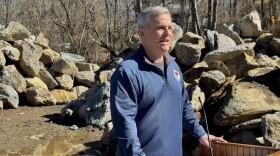-
The federal government plans to pay to keep coal plants open longer. It recently selected Duke Energy’s two-unit coal-burning plant to receive up to $34 million.
-
The student-led Sustainable Schools Coalition wants the Durham Board of Education to develop a Climate Action Plan, as agreed by the board in 2021.
-
The town accused the utility giant of engaging in a decades-long public deception campaign downplaying the risks of fossil fuels and climate change. The judge says the case presents "nonjusticiable questions."
-
The utility is currently asking state regulators for permission to raise rates and increase its returns.
-
The Energy Saver NC program was funded with $208 million from the Inflation Reduction Act. It is intended to help low- and moderate-income households slash utility bills.
-
Supporters call the changes modernization; critics warn they could weaken safeguards in the Toxic Substances Control Act, the nation’s primary chemical safety law.
-
Wake County officials have developed a 50-year plan for conserving the county's water supplies for a rapidly growing population. The plan also aims to address issues such as increasing floods, groundwater contamination, and water supply for potential data center development.
-
A public hearing Wednesday at the Durham County Courthouse was the first opportunity for members of the public to weigh in on this year's iteration of the Carbon Plan. This plan outlines how Duke Energy will achieve carbon neutrality by 2050.
-
The General Assembly’s Energy Policy Commission met for the first time in nearly two years to review lessons learned and discuss North Carolina’s path forward on nuclear energy.
-
In its proposed 2025 resource plan, Duke Energy said it wants to add seven combustion turbines in the coming years. The utility is considering Belews Creek for two of those.
-
Wake County Commissioners approved a new animal center to replace the county’s current one, which has been running for about 30 years.
-
Millions of Americans are bracing for a potentially catastrophic ice storm from New Mexico to the Carolinas. Forecasters say it could crush trees, power lines, and cause power outages for days.















